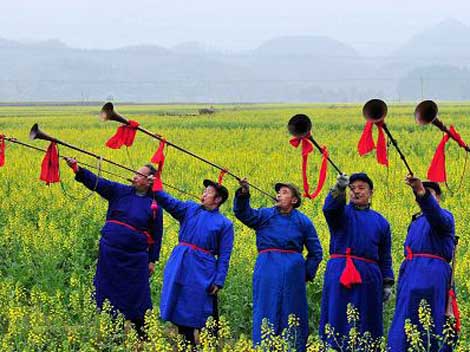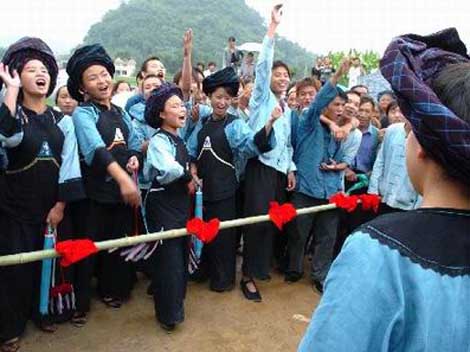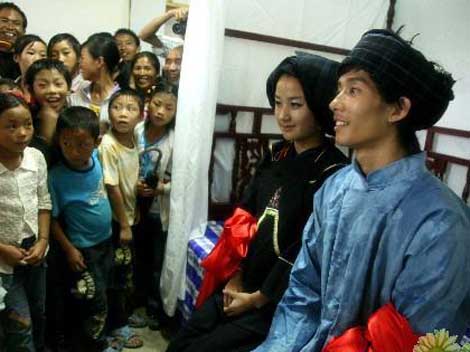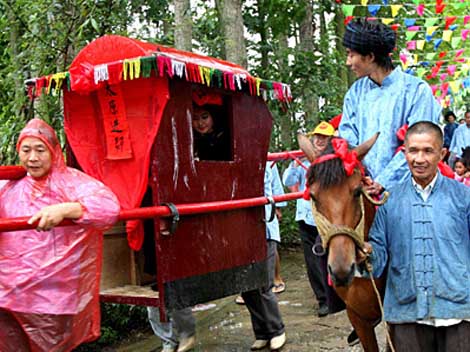Traditionally, four rituals precede and are prerequisite to the nuptials of Bouyei ethnic groups. Taking place in succession, the rituals comprise the Bouyei pre-wedding period and its customary practices.

The first of these rituals, known as the kaikouqin, takes place after the couple has sung love songs to each other as a token of their betrothal. In this first public step toward marriage the prospective groom's family invites a matchmaker to present the bride's family. If all goes well in this initial ritual, the second prenuptial ritual—the ritual of shajili—ensues, in which the prospective groom's family presents the bride's family with double numbers of chicken, wine and sugar.

Shortly after the shajili, another step in the Bouyei betrothal ritual transpires when the bride's family invites maternal relatives to celebrate with them. This is followed by the fourth and final ritual of the engagement in which the groom's family presents the bride's family with another trove consisting of wine, chickens, pork, firecrackers and, as is specified by Bouyei tradition, four red candles.

On completion of all four rituals, if the engaged groom is judged to have satisfactorily fulfilled the required engagement rituals, then a Bouyei wedding takes place.

For the wedding ceremony, two men appointed from the groom's family are chosen to lead the bride and her maid-of-honor in procession to the groom's village. According to custom, on her arrival there the bride should stay at a relative's house in the village with the groom and be married to him in his family's house the next morning.
During Bouyei weddings, scores of young men and women are invited to join in antiphonal singing that involves the female and male sides exchanging parts of songs in unison with one another.
Singing for Bouyei people is not only an entertainment but an important communication skill for welcoming, wooing, becoming betrothed to and finally wedding their future Bouyei spouses.





